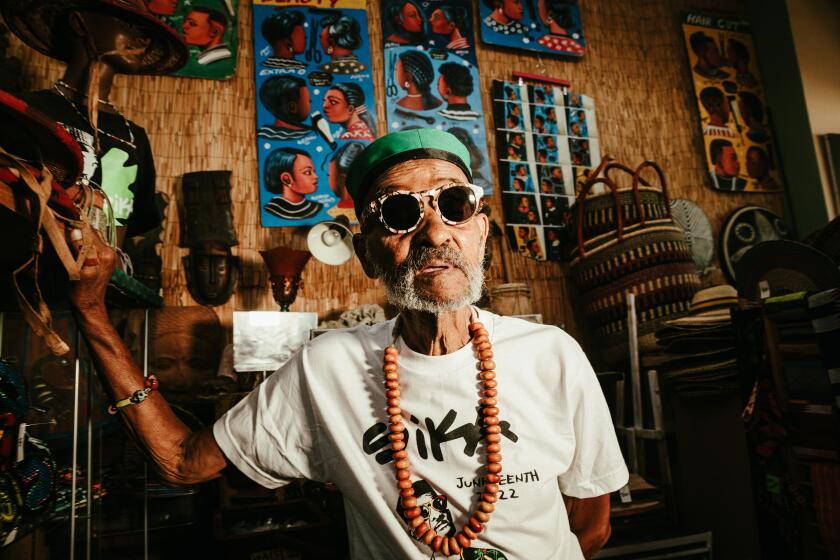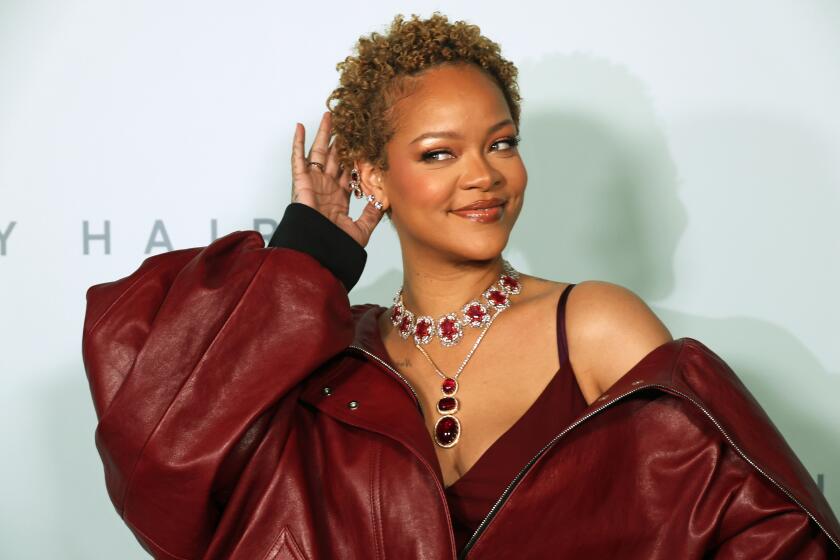Doing Business : Clinique Succeeds While Rivals Take a Powder : In a brash move, the U.S. cosmetics company demanded that Japanese consumers adapt to its own style. And they did.
One look at the cosmetics area of Seibu Department Store in the trendy Shibuya district of this city says it all. There, Clinique Laboratories of New York, with eight counters, 40 consultants and an eye-catching display of brilliant white, silver and pale green, dominates the scene.
Clinique has more space, more consultants, more customers and more sales than any other cosmetics retailer at Seibu. That includes Japanese cosmetics king Shiseido of Japan, which is squeezed into the other side of the room along with an assortment of European brands.
In 15 years, Clinique has emerged as the best-selling brand in the small but elite department-store cosmetics market. It has also revolutionized the way cosmetics are sold to a group often called the world’s pickiest consumers: Japanese women.
The firm succeeded, according to Fred Langhammer, the chairman of Clinique’s parent, Estee Lauder Corp., with an approach seldom urged in business textbooks: Rather than adapting to the “Japanese way of doing business,” Clinique forced the Japanese to adapt to it.
In a country where such decisions are usually dictated by the department stores, Clinique demanded that it be assigned the most desirable floor space. It insisted on hiring its own staff and dressing them in white laboratory coats rather than using department-store employees clothed in standardized uniforms. It refused to budge on its stark white-and-silver displays when most department stores were decorating their cosmetics counters in blacks or tans.
In a brash role reversal, stores that refused to comply with those demands were politely denied the privilege of selling Clinique.
That attitude shocked the Japanese cosmetics industry and led to more than a few grumbles. But Clinique officials here say it was the key to their success.
“In the beginning, there were wolves in front of us and tigers behind us,” said Naohiro Irie, representative director and vice president of Clinique in Japan. “But I think we succeeded because we didn’t compromise. Had we compromised, it would have been impossible to succeed as a brand business.”
In short, Clinique came across in Japan as an unapologetically foreign firm offering a new way of doing business that would enrich all involved.
“Certainly, everyone was talking about them,” said Motoji Fujii, executive director of the Japan Cosmetics Industry Assn.
The talk wasn’t always favorable. Consider the charges of strong-arming, for example.
Earlier this year, when Sogo Department Store in Hiroshima remodeled its cosmetics area and placed a Clinique competitor, Clarins of Paris, in front of it, Clinique abruptly sent all of its staff out for a day’s worth of “training.” That left the beleaguered Sogo with no consultants to staff the Clinique counter, inconveniencing the store’s customers.
Sogo eventually got the message and moved Clarins to a less prominent location--but the squawk resulted in unflattering headlines for the New York giant. “Clinique’s Tactics that Disregard the Customer,” blared one in International Merchandise, a Japanese magazine.
Still, people don’t argue with success, and most stores seem to put up with Clinique because its methods work.
Clinique was the first company, foreign or Japanese, to sell its products only at department stores rather than through the hundreds of thousands of specialty cosmetics stores that dot this country. Shiseido, for instance, sells through more than 25,000 small cosmetics stores nationwide and remains the overall industry sales leader. In 1991, those specialty stores accounted for 23.8% of all cosmetics sales, compared to 7% for department stores.
Langhammer, who engineered Clinique’s entry into the Japanese market while living here as the company’s president, deliberately chose the more limited target of department stores. His explanation is blunt: There was no way Clinique could hope to match Shiseido’s massive retail distribution system.
“I don’t want to fight someone stronger than I am, fist against fist,” he said in a telephone interview from New York. “I want to use my fist against one of his fingers.
“Dying as a hero is a noble idea--but is very abrupt in its conclusion,” he added.
Langhammer and Irie approached top Japanese department stores, such as Seibu and Isetan, with what was at the time a revolutionary proposal. Clinique would sell only through them, helping the stores increase their cosmetics sales and grab market share from other distribution channels, such as supermarkets and specialty cosmetics stores. In return, the stores had to comply with Clinique’s uncompromising demands.
One strong argument for Clinique was that only 1% of women who passed through the department store cosmetics sections at the time stopped and bought something.
“I told them that 99% of their female traffic wasn’t buying any products because what they were offering was also being offered in 20,000 other stores,” Langhammer recalled.
Aside from offering Clinique as a unique, department-store-only product, Langhammer and Irie also told store managers they would drastically change the then-prevailing modus operandi of “accosting” women in the stores and urging them to buy makeup.
Clinique’s emphasis on skin care rather than makeup dovetailed perfectly with the Japanese woman’s notorious preoccupation with her complexion. In Japan, 60% of cosmetics sales are skin-care products and 40% are makeup; those proportions are reversed in the United States.
The firm introduced its now-famous personal customer consultations, which are far more elaborate in Japan than at Clinique counters in the United States. At Seibu, for instance, one consultation lasted 30 minutes. Client records are computerized, just like a hospital. The display area includes a separate section devoted to more “serious problems.” The average number of chairs per site is about 15, three times that at such places as the Beverly Center in Los Angeles, a Clinique official said.
Clinique’s consultants are rewarded not according to how many sales they make but how many consultations they give. They’re told to avoid the hard sell, particularly on the first visit when they simply explain skin care and dole out free samples. Last year, consultants in 100 stores served 4.4 million clients.
Clinique turned out to be a trailblazer, with other upscale brands, such as Chanel, now also selling only in department stores.
According to Clinique and industry publications, department-store cosmetics sales have expanded from an annual $8 million, or 1% of all store sales, to $40 million, or 2% of all sales since 1976.
While precise numbers are secret, Clinique reportedly has managed to snare one-fourth of all cosmetics sales at most major department stores. When Langhammer arrived in Japan 12 years ago, Shiseido also dominated department store cosmetic sales, with a 50% market share. But now, at Isetan department store in Shinjuku, for example, Clinique takes a 25%-30% share while Shiseido has dropped to 15%, said Kazuyoshi Sano, an Isetan sales manager.
Clinique benefited from luck and timing as much as its own shrewd tactics, the Isetan manager said. Japanese consumers were just beginning to focus on “beauty within” using natural skin-care products such as those offered by the U.S. company rather than “beauty without” using makeup. Clinique officials counter that they helped introduce and define that trend.
Shiseido would not comment on its American competitor and insisted that its “counseling leader” marketing concept introduced a few years ago was not a copycat move.
Clinique’s sales, which were growing by more than 30% annually in the 1980s, have flattened somewhat, Langhammer acknowledged. The privately held company would not disclose more specific figures, although it retains its No. 1 position in department-store sales.
To help spur new business, the company is expanding into what it calls department-store “satellite shops” in the outlying areas of Japan. So far, 58 have been built.
“You’re looking at Estee Lauder and Coca-Cola as among the premier success stories of Japan,” Langhammer boasted.
Except that not all Japanese consumers realize that this American success story is, in fact, American.
“Isn’t it English?” a 56-year-old Tokyo homemaker asked after buying several products at Isetan in Shinjuku. “All of my friends told me I can relax because Clinique is a U.K. product. It’s terrible to say, but I can’t trust American products at all.”
Researcher Megumi Shimizu in The Times Tokyo bureau contributed to this article.







